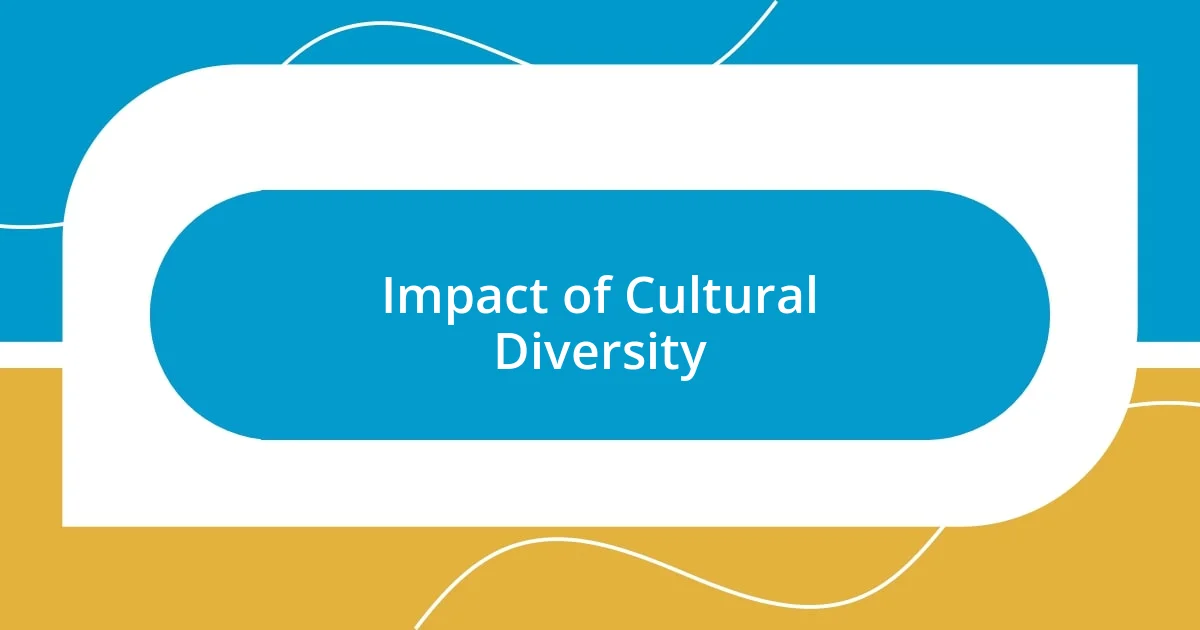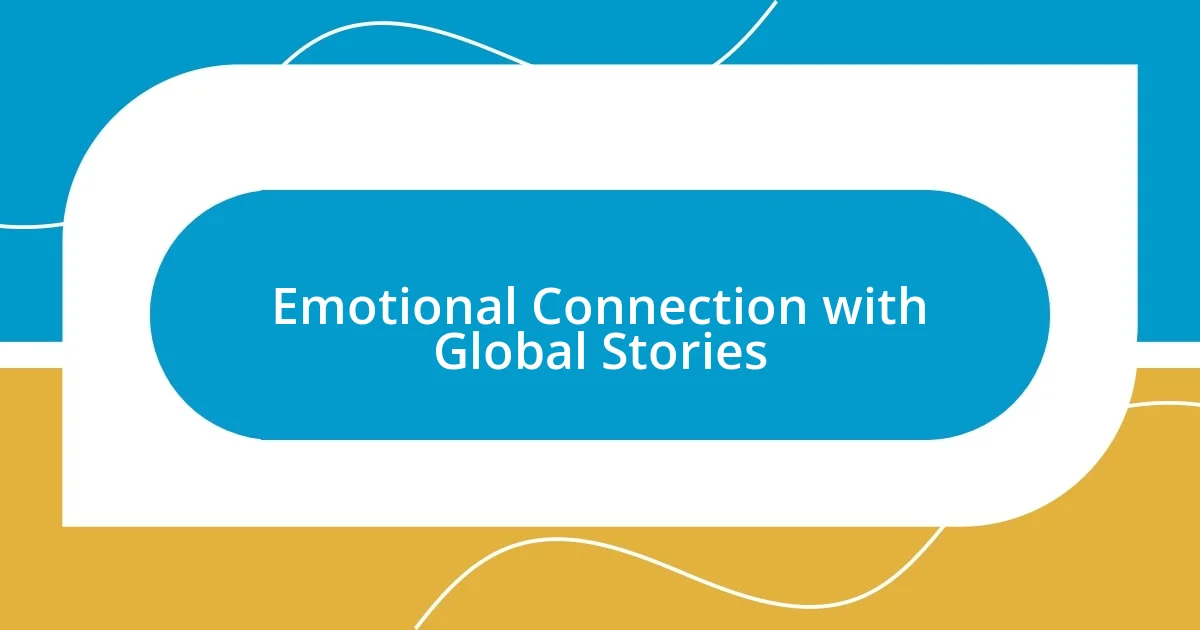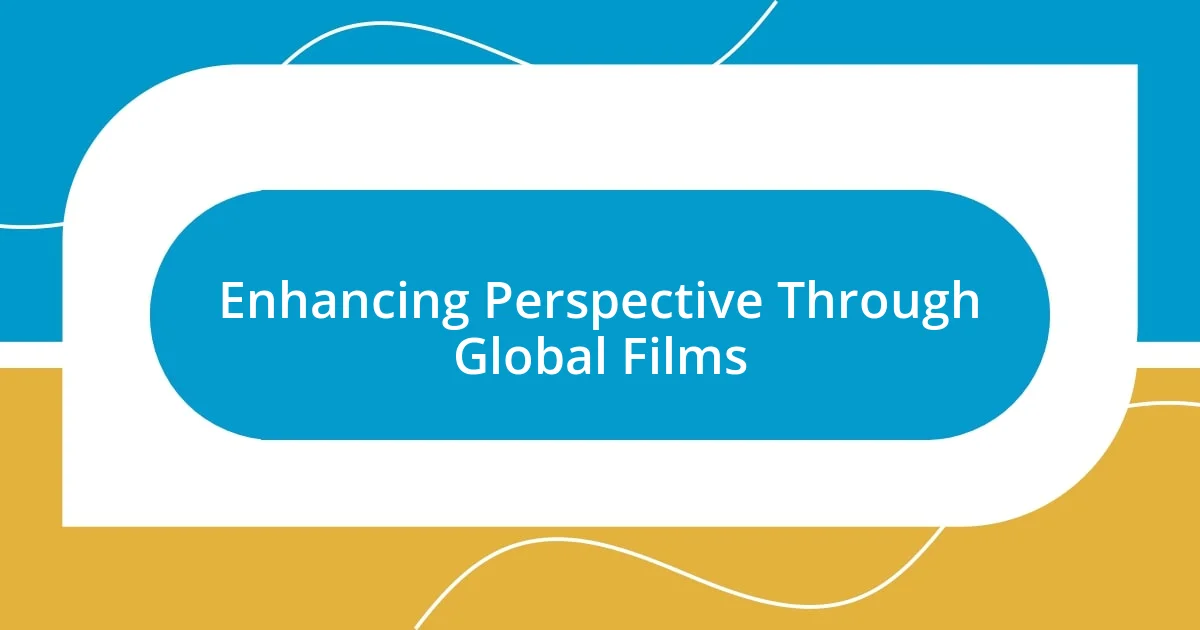Key takeaways:
- International cinema offers unique storytelling that resonates emotionally across cultural boundaries, often evoking deep empathy and understanding of diverse human experiences.
- Distinct filmmaking techniques, such as non-linear narratives and allegorical storytelling, challenge conventional norms and enrich viewers’ perspectives on global issues and personal identity.
- Engaging with international films fosters a sense of unity and reflection on one’s own life, prompting conversations about empathy, resilience, and our shared human experience.

Reasons to Explore International Cinema
One of the most compelling reasons to explore international cinema is the unique storytelling that transcends cultural boundaries. I still remember the first time I watched a French film that delved into themes of love and loss. It was fascinating how different narratives can evoke feelings that resonate so deeply, even when the cultural context is foreign. Have you ever felt distinctly moved by a film that painted a picture of life so different from your own?
Additionally, international cinema often presents innovative filmmaking techniques that differ from mainstream practices. For example, I was captivated by a South Korean thriller that employed non-linear storytelling. It was such a refreshing departure from the typical narrative structures, sparking my curiosity to see what other creative approaches filmmakers around the world have to offer. It really opens your eyes and makes you think, doesn’t it?
Finally, diving into international films can deepen your understanding of global issues and perspectives. I recall being profoundly impacted by a documentary from Brazil focusing on social inequalities. It ignited a desire in me to learn more about those issues and the people affected by them. When was the last time you watched a film that completely shifted your perspective on a particular subject?

Impact of Cultural Diversity
Cultural diversity in international cinema introduces a vibrant tapestry of stories that allow viewers to experience life through different lenses. I vividly recall watching an Indian film that explored family dynamics in a rural setting. The warmth and complexity of those relationships resonated with me, evoking memories of my own family traditions, despite the stark cultural contrasts. Isn’t it incredible how storytelling can create a bridge between disparate cultures?
This rich variety prompts filmmakers to adopt distinct styles and narratives that challenge conventional filmmaking norms. For instance, I found a Japanese animated film that integrated folklore in a way that felt almost magical. The visuals and themes lingered with me long after the credits rolled, reminding me of the interconnectedness of our human experiences. Have you ever found a film that has forever changed your perception of animation or visual storytelling?
The juxtaposition of diverse cultures not only entertains but also educates. I was especially moved by a Spanish film highlighting immigrant experiences. It brought to the forefront issues of identity and belonging, which made me reflect on my own community’s diversity. This immersion into various cultures through cinema often leaves me questioning my own assumptions and encourages a broader dialogue about empathy and understanding.
| Aspect | Description |
|---|---|
| Storytelling | Unique narratives that resonate emotionally, transcending cultural barriers. |
| Filmmaking Techniques | Diverse styles that challenge mainstream cinema norms, sparking curiosity. |
| Education | Films that illuminate global issues, fostering deeper empathy and understanding. |

Emotional Connection with Global Stories
There’s something profoundly moving about the way international films can connect us to emotions we often share, regardless of geographical distance. I think of a scene from an Italian film that depicted a mother’s grief after losing her child. It stirred something so deeply within me, reminding me of the universal nature of love and loss. That moment made me realize that, despite cultural differences, our emotional experiences can be strikingly similar. Have you ever felt such a strong connection to a character’s heartbreak, even if their life was worlds apart from yours?
When I watch international cinema, I often find myself engrossed in stories that feel both familiar and new. Here are a few aspects of how these global narratives forge emotional connections:
- Shared Human Experience: Themes of love, loss, and hope are universal, transcending cultural borders and inviting empathy.
- Cultural Nuances: The subtle differences in how emotions are expressed can add depth to the experience, revealing new facets of feelings I thought I understood.
- Relatable Characters: Characters facing challenges that mirror my own experiences allow me to explore my emotions from different perspectives.
These elements together create a rich emotional tapestry that resonates long after the film ends. Is there a specific film that you found yourself reflecting on days or even weeks later?

Unique Storytelling Techniques in Cinema
There’s something truly captivating about how international cinema utilizes unique storytelling techniques to engage viewers. For instance, I remember watching a Thai film that employed non-linear narratives, weaving past and present seamlessly. It felt like piecing together a puzzle, inviting me to invest in the storyteller’s journey while encouraging me to reflect on how our own memories shape our realities. Have you ever experienced a film that made you rethink how you view your own life’s timeline?
A striking example of distinct storytelling is the use of allegory. I found this particularly powerful in a South Korean drama where a seemingly simple tale of a family unfolded into a broader commentary on societal issues. It was nothing short of an awakening for me, exposing the layers of meaning within what might have initially appeared as a straightforward narrative. Why do certain stories resonate more profoundly when couched in allegorical form, making us ponder our own societal roles?
Moreover, the integration of visual poetry in international cinema often leaves a lasting impression. I can think back to a French film that utilized stunning imagery instead of dialogue to convey complex emotions. Each scene felt like a painting, brilliantly expressing heartache and hope without uttering a single word. Have you ever been moved by a film that spoke to you in silence, making you feel the weight of emotion simply through its visuals?

Influences of International Filmmakers
The influence of international filmmakers often lies in their ability to challenge conventional storytelling norms. I remember watching a Brazilian film that boldly pushed the boundaries of character development, allowing protagonists to evolve in unexpected ways. This unpredictability kept me on the edge of my seat, prompting me to think about how we define ourselves in the real world—are we more than our circumstances? It’s a question that lingers long after the credits roll.
Collaboration across cultures can also significantly impact a filmmaker’s vision. I was fascinated by a Spanish film that incorporated elements from various artistic traditions, using flamenco music to heighten dramatic moments. That blend of sound and visual storytelling made me consider how diverse influences can enhance emotional depth. Have you ever found yourself connecting with a film because of its eclectic styles, prompting you to explore cultures beyond your own?
Additionally, the meticulous attention to detail often evident in international cinema speaks volumes. In one Japanese film, every frame was crafted with care, conveying a sense of beauty that transformed simple moments into profound statements about life. I often reflect on how the patience shown in these films resonates with my own life experiences. Isn’t it refreshing to see a film that takes its time, allowing us to savor each moment rather than rushing toward the conclusion?

Recommendations for International Films
When exploring international films, I often find myself captivated by titles such as “Amélie,” a French gem that brilliantly weaves whimsical storytelling with surreal visuals. The way each frame bursts with color and emotion pulls me into a world where even the smallest moments feel monumental. Have you ever been enchanted by a film that made you see the beauty in everyday life?
Another standout for me is “Pan’s Labyrinth,” a Mexican fairy tale that intertwines dark fantasy with the harsh realities of war. The haunting imagery and profound themes struck a deep chord within me, prompting reflection on the power of imagination during distressing times. It’s fascinating how a film can transport us to the depths of our fears while showcasing the resilience of the human spirit. Isn’t it incredible how stories can offer both escape and a mirror to our struggles?
I also highly recommend viewing “The Motorcycle Diaries,” an Argentine film that chronicles the youthful journey of Che Guevara. It not only sparked my desire for adventure but also deepened my understanding of social justice and personal transformation. That sense of longing for exploration and purpose often lingers long after the film ends, reminding me that cinema can ignite our passion for change. Have you ever watched a film that prompted you to reconsider your own life’s journey?

Enhancing Perspective Through Global Films
Watching global films truly opens the door to diverse perspectives that I find both refreshing and enlightening. I remember a poignant Indian film that vividly portrayed the struggles of a rural community grappling with modernization. As I watched, I felt a deep connection to the characters, understanding their dreams and fears, even though our worlds were worlds apart. It made me realize that, at our core, we all share common aspirations, despite our diverse backstories. Have you ever felt a sense of unity with a character from a vastly different culture?
These cinematic experiences also challenge my preconceived notions about life beyond my own borders. For instance, I once stumbled upon a South Korean drama that painted a heart-wrenching yet beautiful portrait of familial bonds and sacrifice. I found myself moved to tears, not just by the story, but by the additional insights it offered into societal values I hadn’t considered before. Why is it that a film can evoke such complex emotions, making us reflect on our own relationships? It’s almost as if the screen serves as a mirror, reflecting parts of ourselves we didn’t know were there.
Exploring international cinema has also enriched my understanding of global issues, making them feel more personal. I recall watching a documentary from a Middle Eastern perspective that addressed the struggles of refugees. The stories of resilience and survival left an indelible mark on my heart, compelling me to think about empathy in a broader context. How can a film create such impactful dialogue about pressing issues? It’s those narratives that transform us and inspire compassionate conversations in our own lives.














